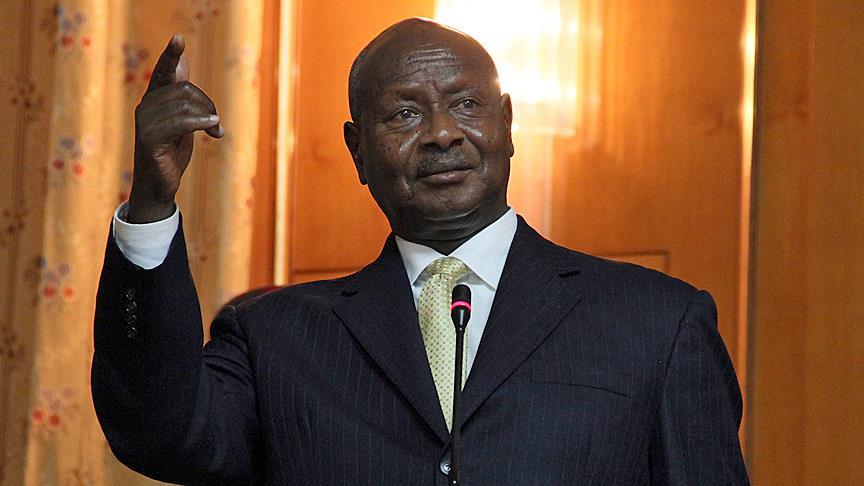 President of Uganda Yoweri Museveni
President of Uganda Yoweri Museveni
By Halima Athumani
KAMPALA, Uganda
Yoweri Museveni was sworn in as Uganda’s president for a fifth term on Thursday at a ceremony in the capital Kampala, which saw attendance of prominent African leaders, including the controversial Sudanese head of state.
Museveni, who grabbed power after a guerrilla war in Uganda in 1986, defended the presence of Sudanese President Omar al-Bashir, who is wanted by the International Criminal Court for genocide, crimes against humanity, and war crimes in Darfur.
Countries all over the world have been asked to facilitate Bashir’s arrest and extradition, but Museveni took a swipe at the International Criminal Court by saying: “ICC is none of our business, we had supported the ICC previously but they are just a bunch of useless people.”
The Human Rights Watch and Amnesty International condemned Museveni for inviting al-Bashir.
“Al-Bashir belongs before the International Criminal Court, not attending inaugural celebrations. Uganda should have handed him over to the ICC,” Human Rights Watch Researcher Maria Burnett told Anadolu Agency in a telephone interview.
Burnett also expressed concern over the deteriorating human rights situation in Uganda.
“We are concerned about the current human rights record in Uganda, the media is under threat and opposition leaders are being arrested. We are concerned where Uganda is heading,” she added.
Local media reports said the opposition Forum for Democratic Change leader Kizza Besigye was last evening flown to Moroto district, some 458 .5 kilometers (284.9 miles) from Kampala, to thwart any possibility of him disrupting the ceremony.
Also, a day before the Ugandan president’s ceremony, social media was shut down in country. Telecommunication companies in the country gave out messages to their customers, saying: “We have been given a directive to temporarily switch off social media.”
Meanwhile, Muthoni Wanyeki, Amnesty International’s regional director, said in a statement: “As a signatory to the Rome Statute, Uganda has an absolute obligation to surrender him to the ICC. Failure to do so would be a breach of its duty and would be a cruel betrayal of the hundreds of thousands of people killed and displaced during the Darfur conflict.”
This is not the first time Bashir has traveled abroad and escaped justice. Last year, he attended an African Union meeting in South Africa but the nation, a signatory to the Rome Statue, also refused to arrest him, sparking widespread criticism.
Apart from Bashir, South African President Jacob Zuma, African Union head and Chad President Idriss Deby and Zimbabwe President Robert Mugabe also showed up at the ceremony.
Deby, who himself has been the head of his state since 1990, heaped praise on Museveni and his three-decade long rule. “Africa needs Museveni because he will bring his long-term experience in power to the African Union and the continent,” he said.
Ignoring the reported detentions of opposition leaders and concerns expressed by human rights groups prior to his swearing in, Museveni in his speech said: “Uganda has been at peace for the first time in 500 years, nobody can disturb the peace of Uganda, nobody has capacity to disturb this peace however hard they may try.”
He also called for peace in the region especially in countries where Uganda had deployed its forces. “We call for peace in the Democratic Republic of Congo, Somalia, the Central African Republic and Burundi.”
The Ugandan president also vowed to fight corruption that has been reportedly entrenched in his government, especially among civil servants.
The swearing in ceremony was also marked with a 20-gun salute, traditional African dances and show of air space might by the Ugandan People’s Defense Force.
*Anadolu Agency Correspondents Hassan Isilow from South Africa and Felix Nkambeh Tih from Ankara contributed to this story
Anadolu Agency website contains only a portion of the news stories offered to subscribers in the AA News Broadcasting System (HAS), and in summarized form. Please contact us for subscription options.

